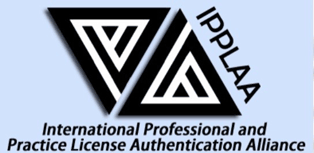 |
International Professional and Practice License Authentication Alliance  |
 |
 |
MRMP Master of Risk Management Professional

Master of Risk Management Professional (MRMP)
Risk management is a logical process or approach that seeks to eliminate or at least minimize the level of risk associated with a business operation. Essentially, the process identifies any type of situation that could result in damage to any resource within the possession of the company, including personnel, then take steps to correct factors that are highly likely to result in that damage.
Once the business model is understood, it is possible to identify specific risks that are present throughout the production process, including the delivery of goods and services to buyers. As those risks are identified, they are analyzed for ways to alter the process so that the end result is still achieved, but the degree of risk is minimized or removed altogether. Risk management may be an extremely complicated process or require nothing more than making a few minor adjustments.
Risk management not only seeks to minimize the potential for injury to employees, but also reduce the opportunity for money and other forms of finance to be abused or utilized ineffectively. By making sure that all resources are utilized in a manner that is safe, logical, and efficient, the profit margin for the company will increase and everyone associated with the company is motivated to continue production.
This program is designed to offer you focus on employee safety measures, machinery maintenance and may demand revamping policies and procedures in order to rid the company environment of potential risk situations. Risk management normally requires the support of owners and the management team in order to refine the overall operation and achieve the lowest degree of risk possible.
By complete the following courses and the examination with approval scores; candidate will be awarded the following certificate:
• |
Master of Risk Management Professional (MRMP)
|
Course Value:
There are common goals for risk management, which also correspond to the stages that organizations typically go through in developing their risk management capabilities:
|
Protect against downside risks |
|
Manage volatility around business and financial results |
|
Optimize risk and return |
At the core of effective risk management strategies is the desire to find ways to manage the degree of uncertainty that exists within any business enterprise. The first step in the process has to do with evaluating the utilization of resources as they current stand. This step involves understanding the logical flow of the production process and how it relates to the successful manufacturing of goods and services for sale to consumers. Once there is a solid grasp of how the organization functions, it is then possible to move on to refining that process with an eye toward managing that uncertainty factor.
Eligibility:
|
A recognized college degree or equivalent degree |
|
More than three years work experiences in relative industry |
|
Join a 15-hour back training courses every year after been awarded the certificate |
Charges:
|
Course Fee USD1, 000, after receive the certificate, membership fee (USD100) and license fee (USD500) will be charged |
Courses:(Total 35 hours)
|
Introduction to Risk Management & Structure |
|
Risk Categories and Assessmen |
|
Risk Management and Legal |
|
Risk Management Strategy |
|
Industry Risk Management Practices |
|


